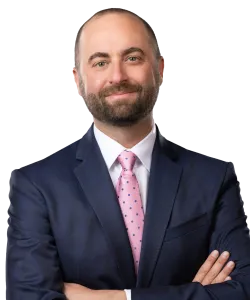Supreme Court Weighs FCA Implied Certification Theory
Partners Jacques Smith and David Greenberg spoke with AHLA Weekly after the US Supreme Court heard oral argument on April 19 in a major False Claims Act case that has far-reaching implications for the health care industry and other highly-regulated sectors reliant on government funding.
“We expect the Supreme Court’s decision in Universal Health to be pivotal for the health care industry, with it likely serving as a bellwether case that has significant impact on False Claims Act litigation for decades to come,” said Jacques.
AHLA reported that the questions from the justices generally focused on where to draw the line for implied certification before a claim for payment is false under the FCA.
“At oral argument, the Justices wrestled over whether the Supreme Court should limit the implied certification theory and how one determines whether violation of a regulation or contract provision is ‘material’ for the purposes of triggering liability under the False Claims Act,” said David. “The outcome of this case may turn on whether the Supreme Court decides to heighten the False Claims Act materiality standard, requiring a plaintiff prove the defendant knew that compliance with the particular statute, regulation, or contract provision was required to receive government payment.”
AHLA reported that the questions from the justices generally focused on where to draw the line for implied certification before a claim for payment is false under the FCA.
“At oral argument, the Justices wrestled over whether the Supreme Court should limit the implied certification theory and how one determines whether violation of a regulation or contract provision is ‘material’ for the purposes of triggering liability under the False Claims Act,” said David. “The outcome of this case may turn on whether the Supreme Court decides to heighten the False Claims Act materiality standard, requiring a plaintiff prove the defendant knew that compliance with the particular statute, regulation, or contract provision was required to receive government payment.”
Contacts
- Related Industries
- Related Practices

